Summary
- See how much different types of forklifts typically weigh
- Learn how to estimate forklift capacity based on weight
Do you need to know how much a forklift truck’s service weight is? Maybe you’re thinking of buying one and want to compare different models, or maybe you’re just curious. Whatever the reason, you’re in the right place. In this guide, we’ll answer the question how much does a forklift weigh? We’ll also discuss what factors can affect a forklift’s weight and how to choose the right model for your needs.
Why Do Forklifts Weigh So Much?
Forklifts are heavy-duty machines that can be used for the transportation of goods. The average forklift weight is between 3,000 and 8,000 pounds (900 to 3,600 KG), depending on the model and type. This is because forklifts need to be able to lift a certain amount of weight to do their job effectively. To do this safely, they need to be very sturdy and well-built – which adds extra weight. The heaviest forklift you can buy weighs a massive 198,000 pounds that’s close to 90,000 KG!
The size and capacity of a forklift can also affect the overall weight of a forklift. For example, larger models with bigger capacities will usually weigh more than smaller models with lower capacities. Additionally, some types of forklifts use heavier materials than others, such as steel or solid tire rubber instead of pneumatic tires, which can also add to the overall weight.
Find Your Perfect Forklift
Compare Quotes from Local Forklift Dealerships


Enter Requirements


We Find the Best Deal


Receive your Quote
Forklift Weights by Machine Type
Now that you know why forklifts weigh so much, let’s take a look at the average weights of some of the most popular types of forklift trucks. Always go to the forklift manufacturer’s website to find out the actual weight of the specific truck or any other specifications you need to know!
Electric Pallet Truck Weight
Electric pallet trucks are relatively small forklifts commonly used in the supply chain industry to transport pallets of goods. Electric pallet trucks usually weigh up to 1,100 pounds (500 KG), except for custom machines built for specific tasks and specific load weights. As with all forklifts, the weight will vary depending on the model and load capacity.
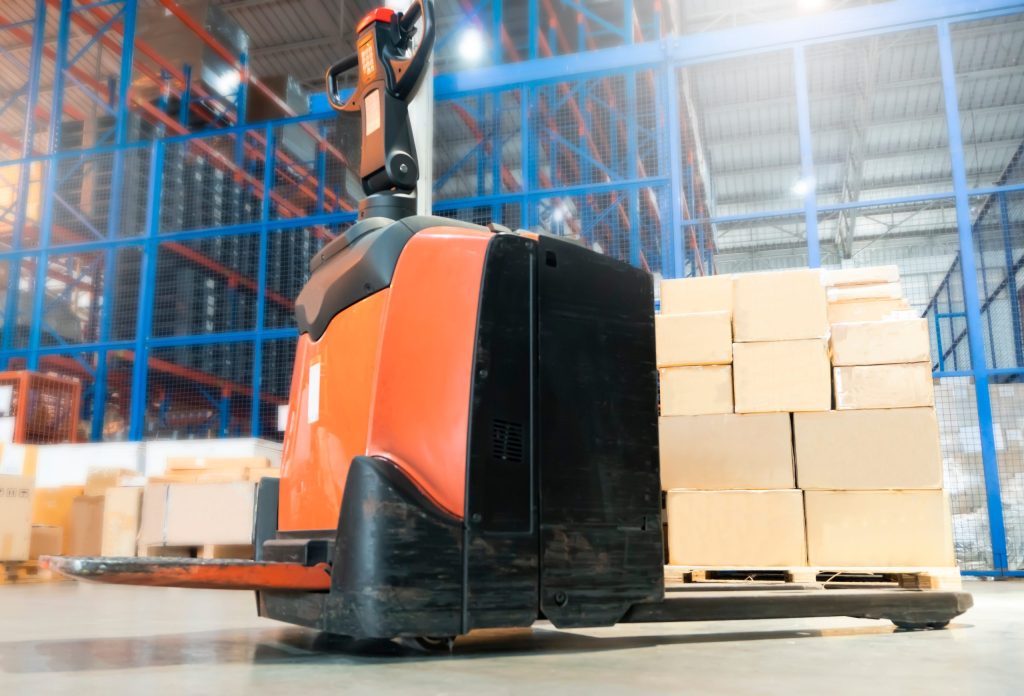
Counterbalance Forklift Weight
Counterbalance forklifts are the most common type of forklift and they come in a variety of sizes. The average weight of a counterbalance forklift is between 4,000 and 8,800 pounds (1800 to 4,000 KG). Again, this will vary depending on the model and capacity and some specialist counterbalance forklifts weigh up to 11,000 pounds (5000 KG).
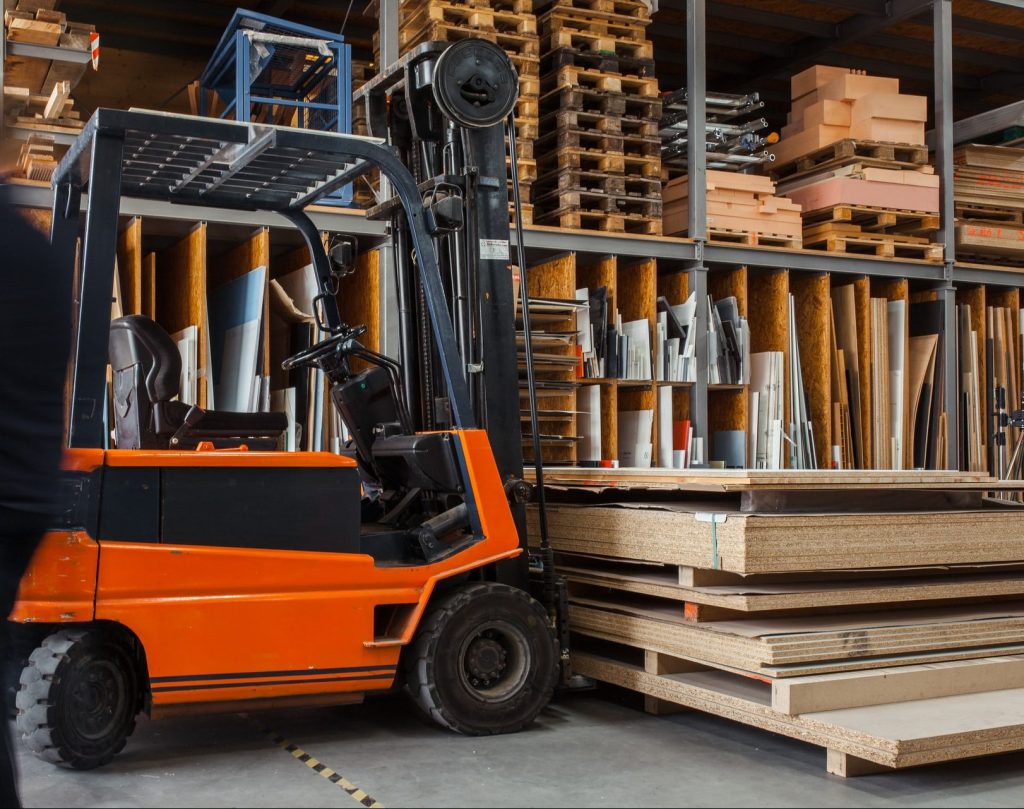
A counterbalance forklift truck in action
Electric Forklift Weight
Even though electric forklifts have a big heavy battery, they tend to be lighter in weight compared to their diesel or gas-powered counterparts. The average forklift generally weighs between 2,500 and 17,600 pounds (1,100 to 8,000 KG), depending on the model and capacity. Electric forklifts have one of the biggest average weight ranges because there are many factors that can add or takeaways from the weight including the battery choice.
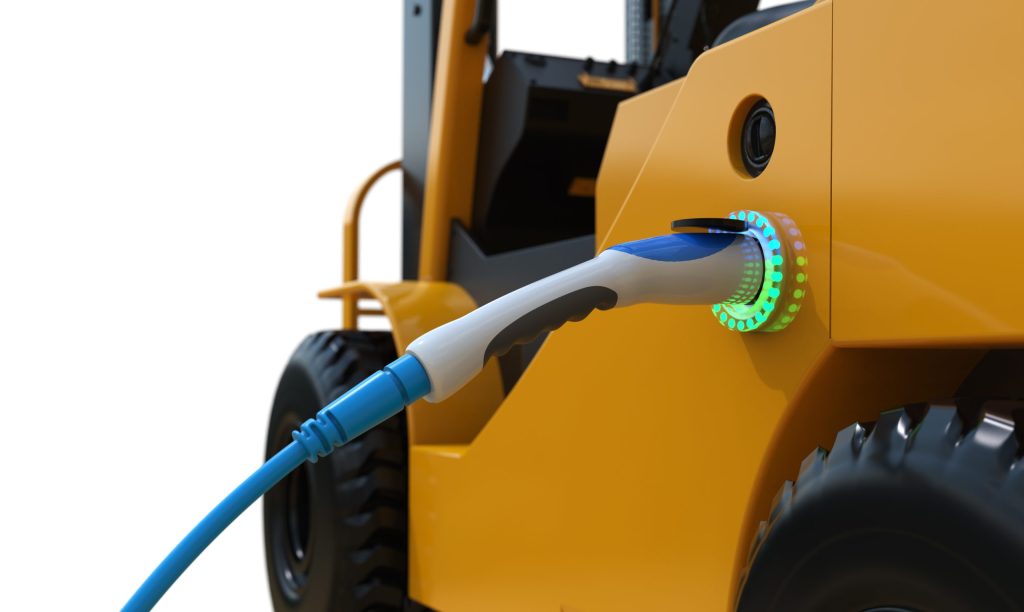
3D rendering forklift truck charges with an electric recharging station
How Much Does A Forklift Battery Weigh?
Common forklift batteries typically weigh between 1,100 and 2,200 pounds (500 to 1000 KG), depending on the type and size of the model. As electric forklifts use large batteries to power their motors, they will usually have a bigger and heavier battery type than other types of forklifts.
Lift Trucks Weight
The term ‘lift trucks’ covers industrial vehicles like scissor lifts and cherry pickers. The weight of the average scissor lift is between 5,000 and 8,500 pounds (2300 to 3850 KG). Cherry pickers can weigh up to 11,000 pounds (5000 KG). Lift trucks need this heavyweight to balance when reaching heights of up to 50 feet.
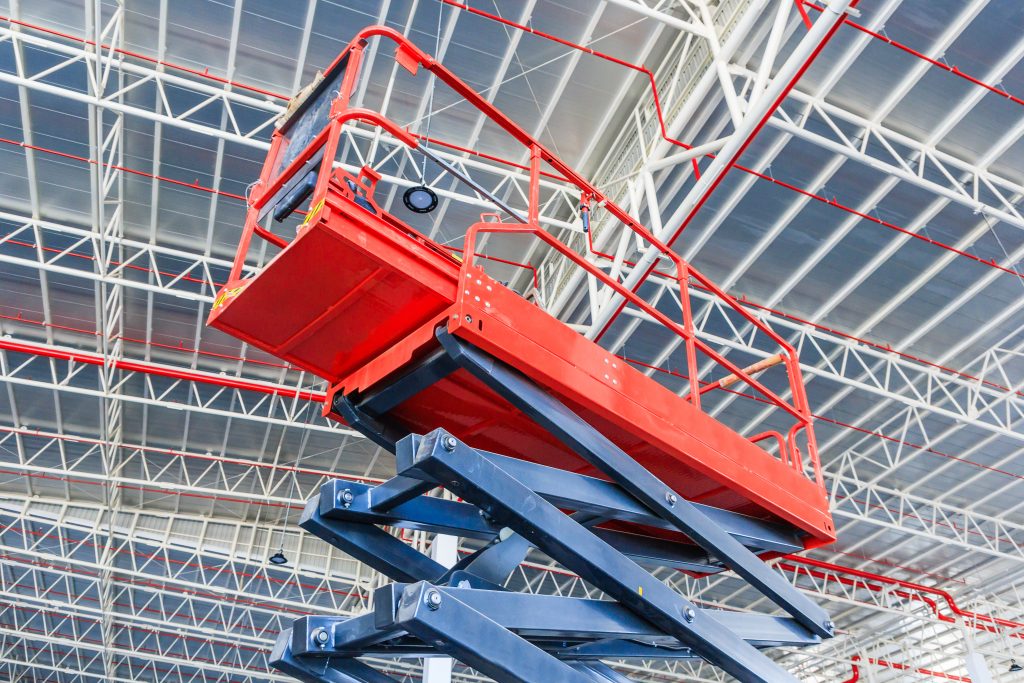
Telehandlers Weight
Telehandlers are a type of industrial vehicle used for lifting and carrying heavy loads. They range in weight from 10,000 to 17,000 pounds (4000 to 8000 KG). Telehandlers need to be strong and sturdy and have a good amount of forklift counterweight to be able to lift heavy weights at heights.
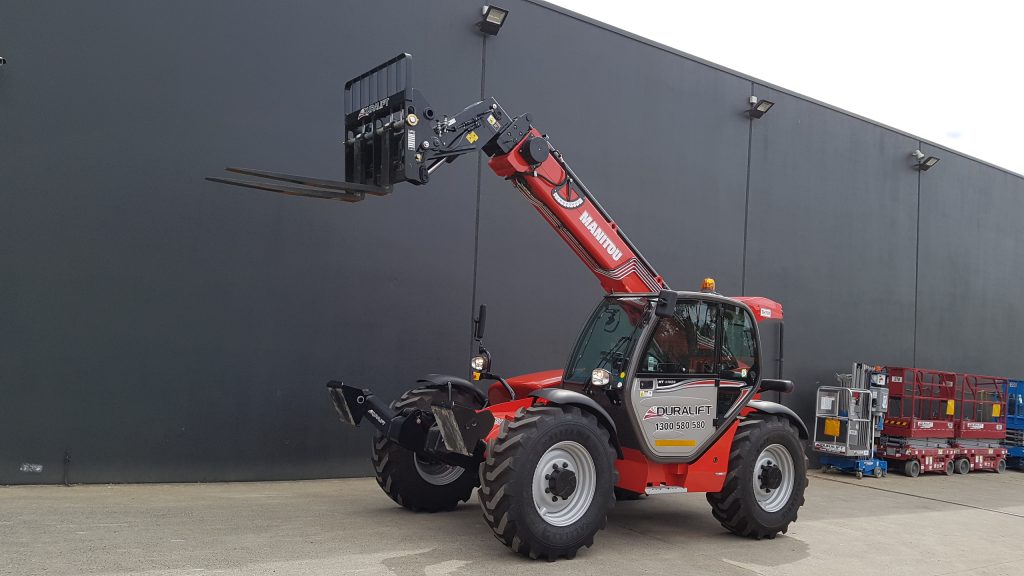
Rough Terrain Forklifts Weight
Rough terrain forklifts are among the heaviest types of forklift trucks. They range in weight from 11,000 to 22,000 pounds (5000 to 10,000 KG). As they are commonly used on uneven floor surfaces this added weight helps to keep them balanced and stable while they lift heavy loads.
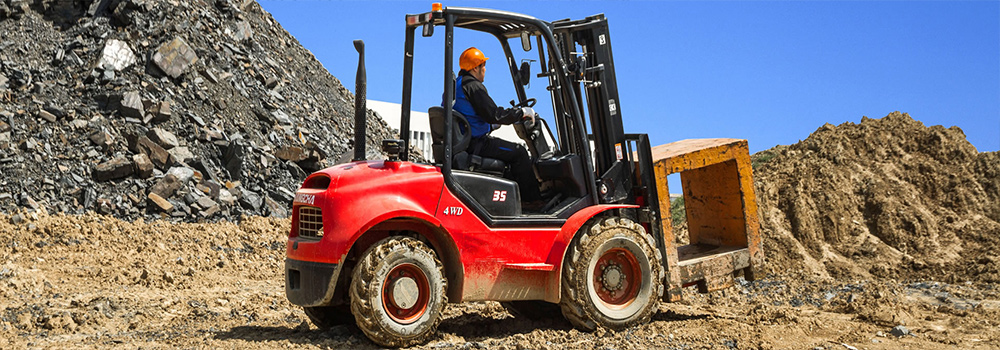
Stackers Weight
Stackers are a type of forklift truck designed for stacking pallets in warehouses and other indoor settings. The average weight of a stacker is between 1,700 and 3,500 pounds (800 to 1600 KG). Their light weight allows them to move quickly around warehouse floors and makes them easy to manoeuvre.
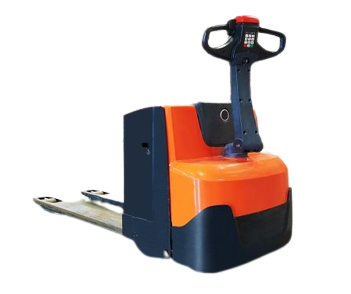
Side-loaders Weight
Side-loaders are very similar to counterbalance forklifts, but they come with a special attachment that allows them to move pallets sideways rather than forwards or backwards. Side-loaders typically weigh between 9,900 and 24,000 pounds (4,500 and 11,000 KG). This extra weight comes from the side-loader attachment, which adds extra stability and strength.
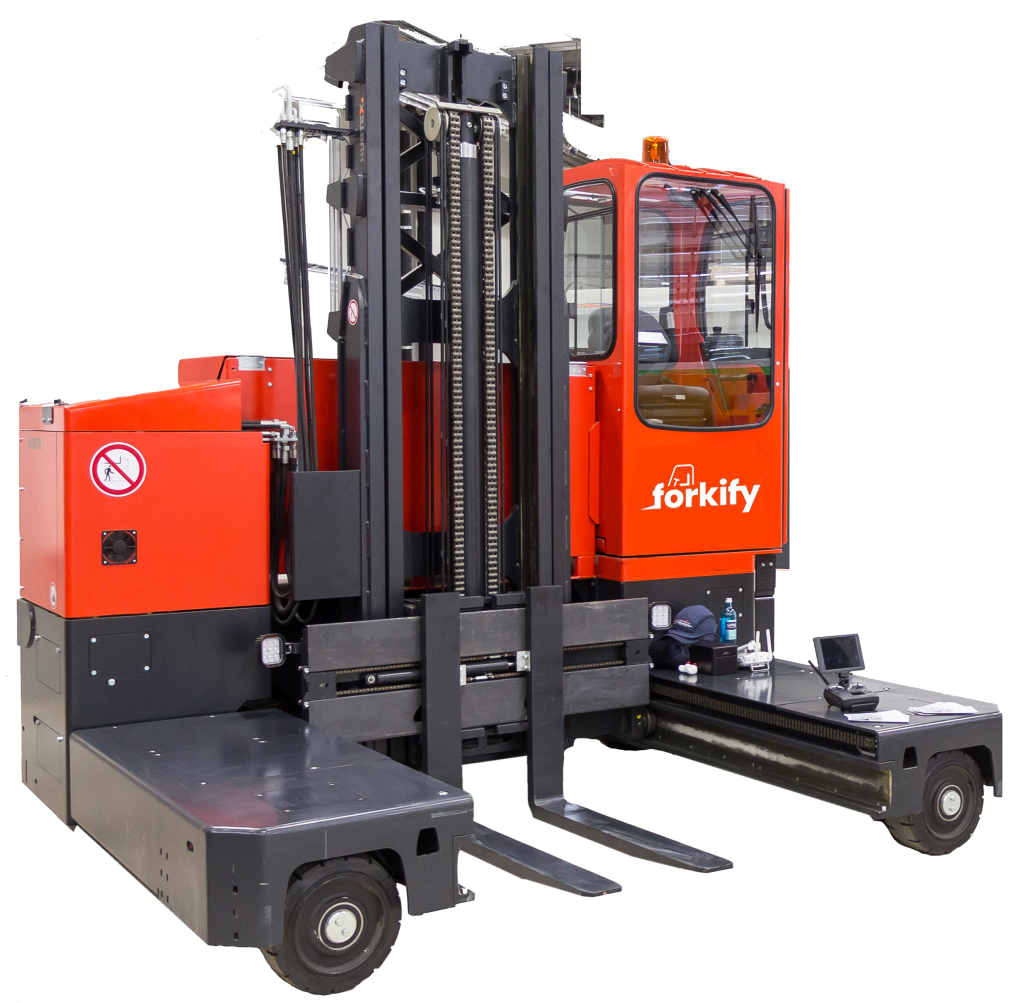
How Much Do Forklift Tires Weigh?
Much like forklift trucks, forklift tires can vary massively in weight. This is due to the material they are made out of and the forklift tires size – pneumatic tires will weigh less than solid or semi-solid tires. Generally speaking, forklift tires will weigh anywhere between 25 and 75 pounds, depending on their size.
How to Determine Your Forklift’s Weight
Determining your forklift’s weight is essential for ensuring safety and optimizing operational efficiency. The weight of a forklift is usually listed in the owner’s manual or on the data plate, also known as the ‘nameplate.’ This plate provides critical information about the machine, including its model, serial number, weight, and lifting capacity. If the manual or data plate is not accessible, you can estimate the forklift’s weight by multiplying its lifting capacity by 1.5. However, this should be used as a rough estimate and it’s always better to refer to the official sources or contact the manufacturer for accurate information.
Forklift Capacity Vs Forklift Weight
The forklift lifting capacity is not the same as its weight but as the capacity goes up so does the weight. This is because larger and more powerful forklifts with higher capacities will need to be stronger and sturdier, which will add extra weight. In addition, the type of materials used can affect the weight too – electric forklifts tend to weigh less than gas or diesel models due to the lighter power source.
Understanding the forklift’s load capacity and counterweight will help you not overload it resulting in a safer working environment with fewer accidents happening to forklift operators.
How to Estimate Forklift Capacity Based On Weight
Estimating the capacity of a forklift based on its weight is relatively straightforward. As a general rule, the heavier the forklift truck, the higher its capacity. A rough estimate can be made by taking the total weight of the forklift and dividing it by 1,500 pounds (the approximate minimum lifting capacity for most forklifts).
Safety Tip: An estimation is not a guarantee, so make sure to consult the manufacturer’s manual for an exact figure before you attempt moving heavy loads.
Conclusion
Overall, forklift trucks vary in service weight depending on the type of machine, its capacity and the materials used to construct it. So, how much do forklifts weigh? The answer is that it depends on the type of forklift and what it is being used for. However, it is safe to say that most forklift models weigh more than the average car. When considering which forklift to buy, it is important to take into account not just the lift capacity but also the weight of the machine. Both of these factors will affect the performance and safety of the forklift.
Finally, it is important to remember that when using a forklift, you should always follow the manufacturer’s instructions and be aware of the forklift’s weight. Knowing the weight of your forklift will help you to operate it safely and efficiently. With the right knowledge, you can make sure that your forklift operation is working properly and safely for years to come.